Michael Chakma, organizer of UPDF, a political party based in Chittagong Hill Tracts of Bangladesh, has been missing since April 9, 2019.
He was picked up in white clothes from Shyamli in Dhaka. For more than five years he was held in a secret prison, popularly known as ‘The Mirror’.
He was released blindfolded on the side of a road in Chittagong on August 6 after being imprisoned in the alleged ‘mirror house’.
Returning from captivity, the son learned that his old father had died with grief. Michael Chakma is no longer alive, the family also performed his last rites according to the custom.
In an exclusive interview with the BBC, Michael Chakma spoke about his days spent in secret prisons. Before being released, Michael Chakma thought of the night he was blindfolded and taken to the car as the last time of his life.
He told the BBC that the blindfold was slightly loose when he was taken into the car on the last night, which at one point he managed to pull off by rubbing against the car seat. And after the Azan some light was seen.
After 2019, Michael Chakma saw the light of day for the first time on August 6, 2024. However, he did not imagine that he would be released on this day.
“Thought I was going to be taken somewhere and killed tonight.”
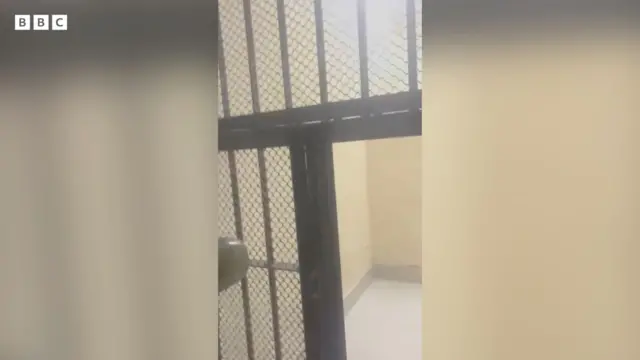
image source,SANJIDA ISLAM
Returning after a long time, Michael Chakma says that those who have ended these five and a half years of his life must be judged. And he alleged that the state forces were involved in it.
Michael Chakma also told the BBC that he will take legal action and demand appropriate compensation from the government if he is healthy and normal.
Where is it kept so long?
Michael Chakma said that he has been kept in several secret prisons in the last five and a half years. The initial questioning was done. But Michael Chakma said he was not beaten. But the manner of solitary confinement and the conditions in which they are kept are inhumane and a terrible form of mental torture, he said.
“The way they keep it is very inhumane. It is not a place where people live. People don’t live like this. It is like a grave. There is no cave, just like a person can’t see anything in a cave, just like a person can’t see anything in a grave.
“It’s not a place for people to live. No windows, no light at all, no air, just walls around,” said Michael Chakma.
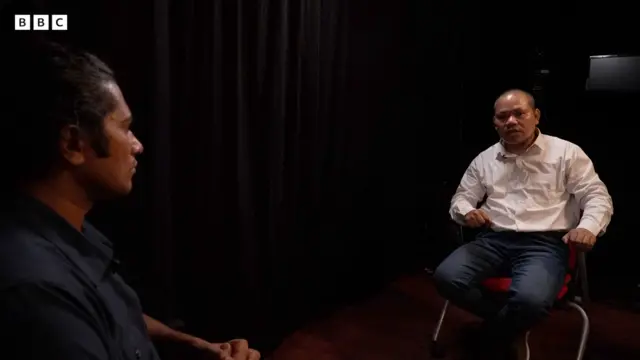
Michael Chakma described the solitary cells in which he was confined, saying, “Some rooms were seven feet by eleven feet, some rooms were eight feet by eleven or twelve feet. It means very small room. There is a three feet by seven feet iron bed. somewhere wooden.”
The prisoners that Michael saw
Michael Chakma said that during this long time he was kept in 4-5 detention centers. He confirmed that more people were detained in these prisons.
He has heard the names of two others who have been kept with him for more than five years, besides two others who have not been seen. But Michael Chakma has no idea what happened to the fate of these prisoners.
Michael said there was no opportunity to see or talk to anyone in the secret prison. However, while taking a shower, he peeked through the hole in the bathroom and saw some prisoners at different times.
“People of different ages. I have seen someone with curly hair and curly beard. Someone younger. I saw a man who was probably fifty-forty-five years old. I saw some people over sixty. Someone is quite young.”
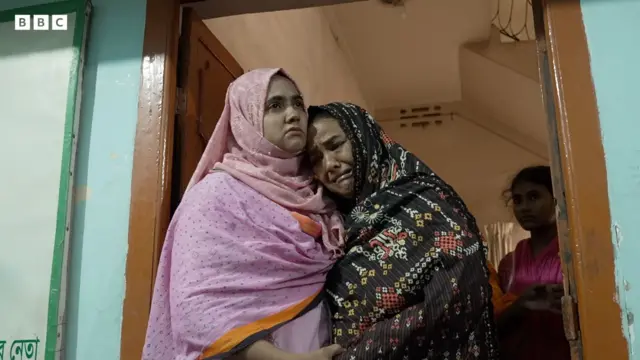
Two prisoners were held together with Michael Chakma on two occasions. Michael can know their identity by talking very secretly. You can also hear the name of another person who was imprisoned in the next room. One of the people he was with is Saidul and the other is Ershad.
Saidul’s house was in Rangpur. Ershad’s house was near Kachukshet in Dhaka, he said. I memorized my sister’s number the day Saidul was taken away. But later I realized that I had given the last digit of the mobile number wrongly.”
Michael said he could hear someone named Zakir in the cell next to him. Hearing the conversation with another prisoner in the room, they seemed to be members of some force.
“I am Zakir, I am Zakir,” he whispered. He repeatedly asked me whether you know Sharif. The one who said that he had not heard the other’s name was called Sir Zakir. Zakir told him we would probably have a court martial.”
“Zakir was beaten once. beat up Zakir comes from there and says I was beaten a lot today. oh i can’t I have a fever. I mean they used to talk. I used to give him medicine. That’s all I’ve heard of them.”
Relatives want to find the missing
Barrister Ahmed bin Kashem Arman and former army officer Abdullahil Aman Azmi have also been released from the so-called ‘Ayna Ghar’, a secret prison after the fall of the government.
But many more missing people are still missing. Many families are broken after seeing various posts and published secret documents on social media.
The missing persons are someone’s children, someone’s brother and someone’s husband, someone’s father.
Families have been waiting for them for a long time. Now, after the political change, the relatives of the missing families have demanded to find out these people.
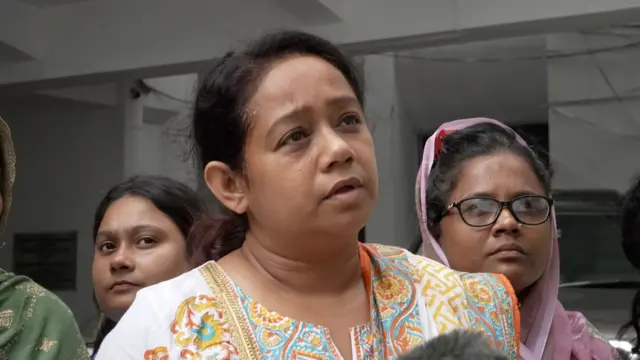
After the fall of the government, the relatives of the missing persons protested in front of the Directorate General of Defense Intelligence DGFI office. Besides, Sanjida Islam, the coordinator of Mother’s Postal Organization, entered the jail and searched for Nikhoj Bhai and others inside the intelligence agency office, CTTC office. Sanjida went from the court to the head of the interim government, traveling with the families of missing persons.
He said they demanded to find out what happened to the missing victims and who was involved. He said that at least six hundred cases of disappearances have occurred in the last fifteen years, many of them have died, some have returned and many are still missing.
“The families outside Dhaka are waiting. The number is not 150 or 200. I think the number is more. If you come back to the student movement, many more people are missing. This should be the top priority of the advisory councils that have come in,” said Sanjida.
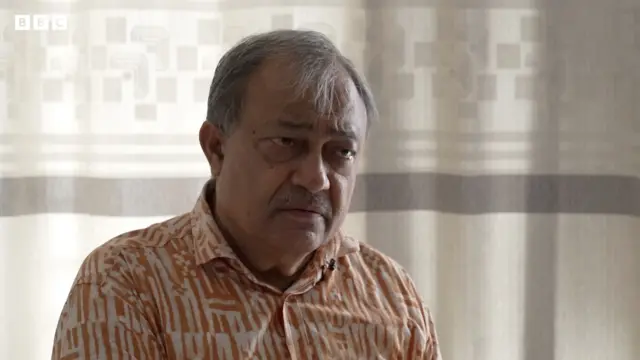
Human rights activists say that a commission should be formed on a priority basis and the families should be informed of the whereabouts of their relatives. Noor Khan Liton has been working on these disappearances for a long time.
He said, after waiting for a long time, many people got married elsewhere. There are many people who are unable to withdraw money from the bank. Many people are unable to share the property. There are various complications.
“So I think the family needs to clearly set up a commission now to investigate what happened, where they are and where they are not.”
Mr. about those involved in the disappearance. Khan said, “Bringing criminals under the law. Because no matter how big an officer they are, they are failures. But we don’t want revenge, we want a fair trial.”
“The previous situation was that anyone would be caught and killed, imprisoned. They would pull out their nails in the name of interrogation. They would do this and that.
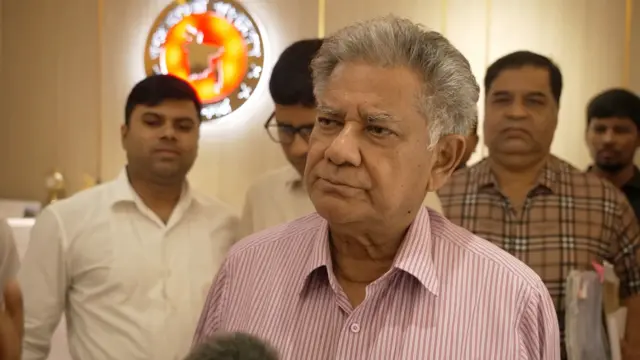
In this regard, Home Affairs Advisor Br.J (Retd.) Dr. M Sakhawat Hussain (when this interview was conducted, he was the Home Affairs Adviser. His office was later changed to Hash) told the BBC that the government was looking at the matter seriously.
“Who did it, how it was done, when it was done is a big investigation. I think it will definitely come up in the next cabinet. It will find that commission by talking and making a commission.”
The Home Affairs Adviser called for some patience towards the families of the missing persons.